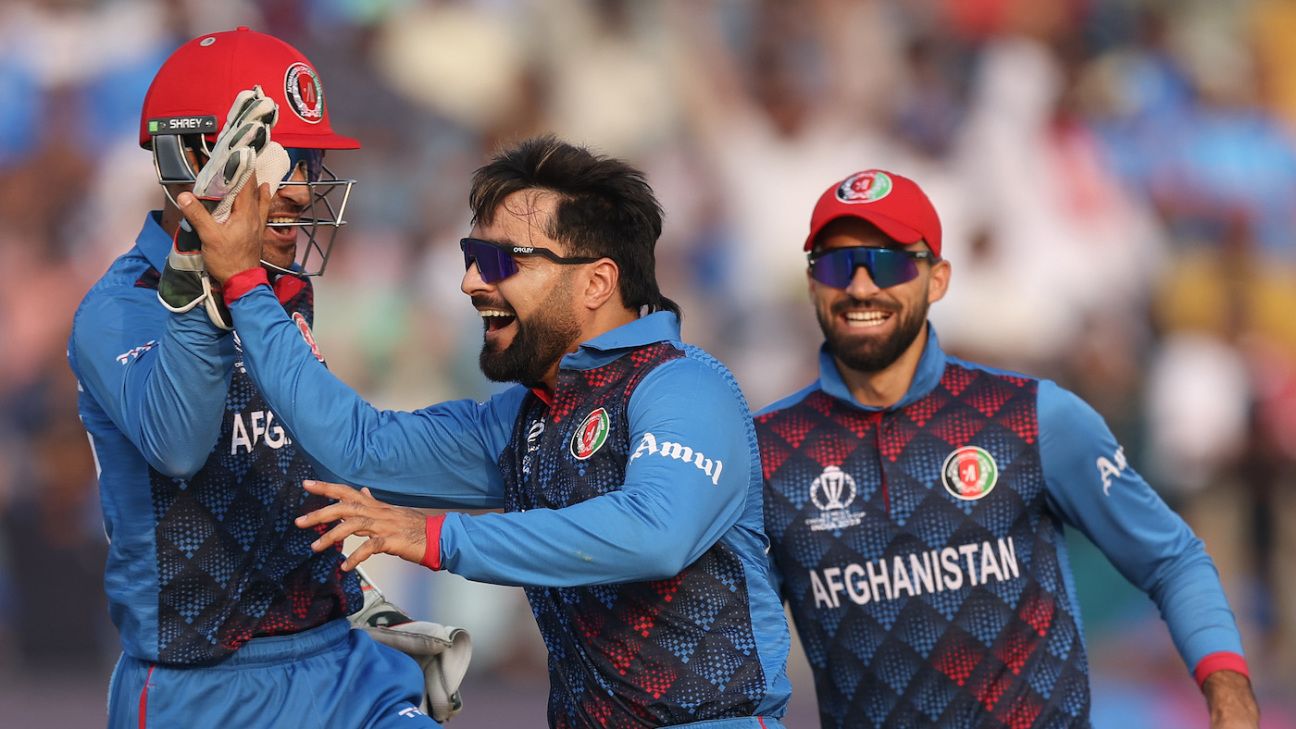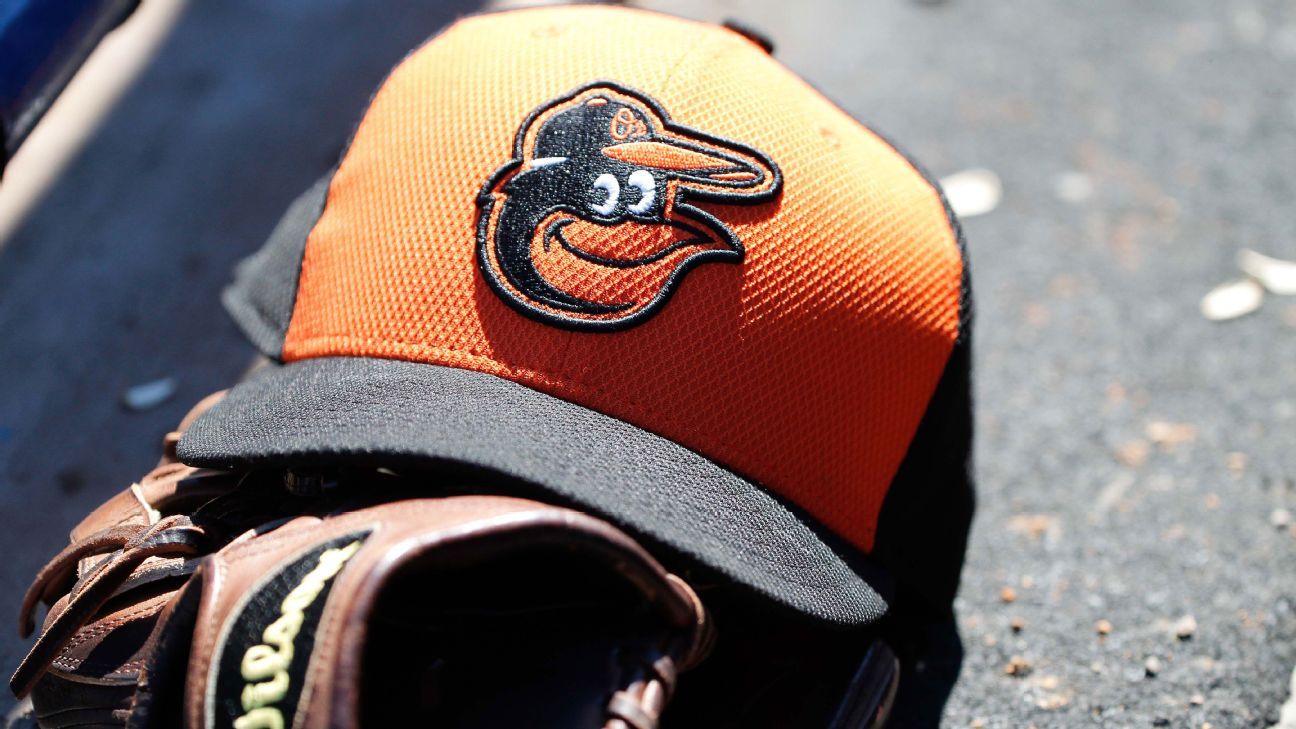Big Picture: History no guide with the semis in sight
There was a time when facing Afghanistan in a World Cup held no fears for Australia. The five-time World Champions have been nothing short of ruthless in the two previous ODI World Cup meetings. In 2015,
in Perth, Australia piled up 417 for 6 with David Warner cracking 178, on their way to a 275-run win. In 2019,
in Bristol, Australia romped home to a seven-wicket win with 91 balls to spare having bowled Afghanistan out for 207 before Warner again made 89 not out.
But there is no chance the 2023 Australians are heading to the Wankhede Stadium assuming they will win again at a canter. Afghanistan poses an enormous threat, despite Australia's
five-game winning streak. Afghanistan have won three in a row themselves and have already taken down England, Pakistan, Sri Lanka and Netherlands as they push for a maiden semi-final berth. And they possess the skill to expose Australia's major weakness, with the spin quartet of Mujeeb Ur Rahman, Mohammad Nabi, Rashid Khan and Noor Ahmad capable of causing Australia's batting line-up no end of problems, while their batting throughout the tournament has been excellent. A similar attack almost upset Australia on home soil at the 2022 T20 World Cup, although it was the pace duo of Naveen-ul-Haq and Fazalhaq Farooqi who did all the damage
on that occasion.
One thing in Australia's favour is that Mumbai is a far cry from the spin-friendly conditions in Chennai and Delhi where Afghanistan's spun out Pakistan and England respectively. Wankhede has been the highest-scoring ground in first innings in the tournament so far and that plays to Australia's strength. Spin has also had next to no impact in Mumbai in the last 10 ODIs at the venue. And while facing spin has been Australia's weak point in ODI cricket in recent times, Australia's batting unit do have very good individual match-up records against Afghanistan's spinners in T20 cricket.
But while history and conditions are on Australia's side as they look to lock in their spot in the last four there is one other thing to consider. This game, like the one in last year's T20 World Cup has a slightly different undertone for Afghanistan than it does their opponents.
Cricket Australia's decision to cancel a Test between the two nations in November 2021 and a three-match ODI series in March 2023 for political reasons remains front of mind for some of the Afghanistan players. Afghanistan has been fueled by a desire to prove a point in this World Cup, a point about their standing in global cricket, and some added motivation certainly won't hinder them.
Afghanistan - WWWLW (last five completed matches, most recent first)
In the spotlight: Rashid Khan and Mitchell Marsh
So long the talisman of Afghanistan's attack
Rashid Khan has been
below his best in this World Cup so far. He has just seven wickets at 43.85. Only Mujeeb has a worse average of all of Afghanistan's bowlers while Rashid's strike rate of 57 is the worst of the group. He has been building pressure though, as he always does, conceding just 4.61 per over with the likes of Nabi and Noor benefitting at the other end at times. But he only has one three-wicket haul, and that was against England. Against Australia, whose batters know him intimately as both team-mates and opponents in the BBL, he does not loom as a major threat. They have seen all his tricks so many times they are unlikely to be beaten by what they know. His wrong 'un has not been the weapon it once was during this World Cup and his legbreak does not seem to strike any fear. But England's Adil Rashid was a well-known foe in Australia's last game and he still had a huge impact taking 2 for 38 from 10 including the wickets of Steven Smith and Josh Inglis, with Smith falling to spin for the fifth time in the tournament. Rashid will need to have an impact for Afghanistan, especially as Australia's bevy of middle-order right-handers match up well to Mujeeb and Nabi.
Mitchell Marsh's innings against New Zealand and his absence against England did reveal a quirk of Australia's batting balance. He looked lost starting against spin in the 20th over. It was his latest entry point in an ODI this year having opened in 11 of his 15 matches and batted three in the other four. The only other time he entered after the 10th over was
in Bloemfontein in September, also after a century stand from Warner and Travis Head, and he was out first ball to spin. But against England, the early losses of Head and Warner left Australia without another power-hitter in the powerplay, something they want to take advantage of. But Marsh's overall record at No. 3 in the last three years has been very poor. He's averaging just 17.60 there
in 10 innings and striking at 73.06 with a highest score of 36 compared to his
extraordinary record opening. Australia look more powerful on paper with him in the line-up, but they would like him to get comfortable at No. 3 heading towards the pointy end of the tournament.
Team news: Naveen or Noor, Smith or Labuschagne?
Afghanistan have been pretty settled and have mainly made changes to the attack depending on conditions. The challenge against Australia is the conditions in Mumbai suggest Naveen should play ahead of Noor Ahmad, and Naveen took 3 for 21 against Australia in the T20 World Cup last year. But Australia's kryptonite has been spin and playing four of them has to be tempting.
Afghanistan (probable): 1 Rahmanullah Gurbaz, 2 Ibrahim Zadran, 3 Rahmat Shah, 4 Hashmatullah Shahidi (capt), 5 Azmatullah Omarzai, 6 Ikram Alikhil (wk), 7 Mohammad Nabi, 8 Rashid Khan, 9 Mujeeb Ur Rahman, 10 Naveen-ul-Haq/Noor Ahmad, 11 Fazalhaq Farooqi
Marsh and Maxwell are expected to return. Marsh bowled and batted and measured his run up too on match eve, and Maxwell batted for a long time against some local spinners. Cameron Green has already
conceded he will miss out for one of them. The big question is who is the other player to make way. Logic would suggest it's
Marnus Labuschagne but he was Australia's top-scorer against England with 71 and has been one of Australia's best players of offspin, legspin and left-arm wrist spin in the tournament while
Steven Smith has had his troubles against offspin and legspin in the tournament, and has also been
suffering from vertigo. The other consideration is
Marcus Stoinis' fitness given he has often been rested on short turnarounds between games due to his injury history. The same could be said for the three quicks given they have only had three days to recover.
Australia (probable): 1 David Warner, 2 Travis Head, 3 Mitchell Marsh, 4 Steven Smith/Marnus Labuschagne, 5 Josh Inglis (wk), 6 Glenn Maxwell, 7 Marcus Stoinis, 8 Pat Cummins (capt), 9 Mitchell Starc, 10 Adam Zampa, 11 Josh Hazlewood
The Wankhede has been a batting paradise in the World Cup so far with first innings scores of 399, 382 and 357 posted already in the tournament.
Mumbai is set to be very hot with temperatures touching 37 degrees, and the air quality will also be a concern.
The Wankhede has the highest average of sixes per match in the tournament so far. In three matches there has been an average of 18.3 sixes struck per game. Arun Jaitley Stadium in Delhi is the next highest with 17.5. David Warner is 45 runs away from 18000 across all forms of international cricket as an opener. Sanath Jayasuriya and Chris Gayle are the only others have to scored 18000 runs as openers in international cricket.
















 Phone: (800) 737. 6040
Phone: (800) 737. 6040 Fax: (800) 825 5558
Fax: (800) 825 5558 Website:
Website:  Email:
Email: 






